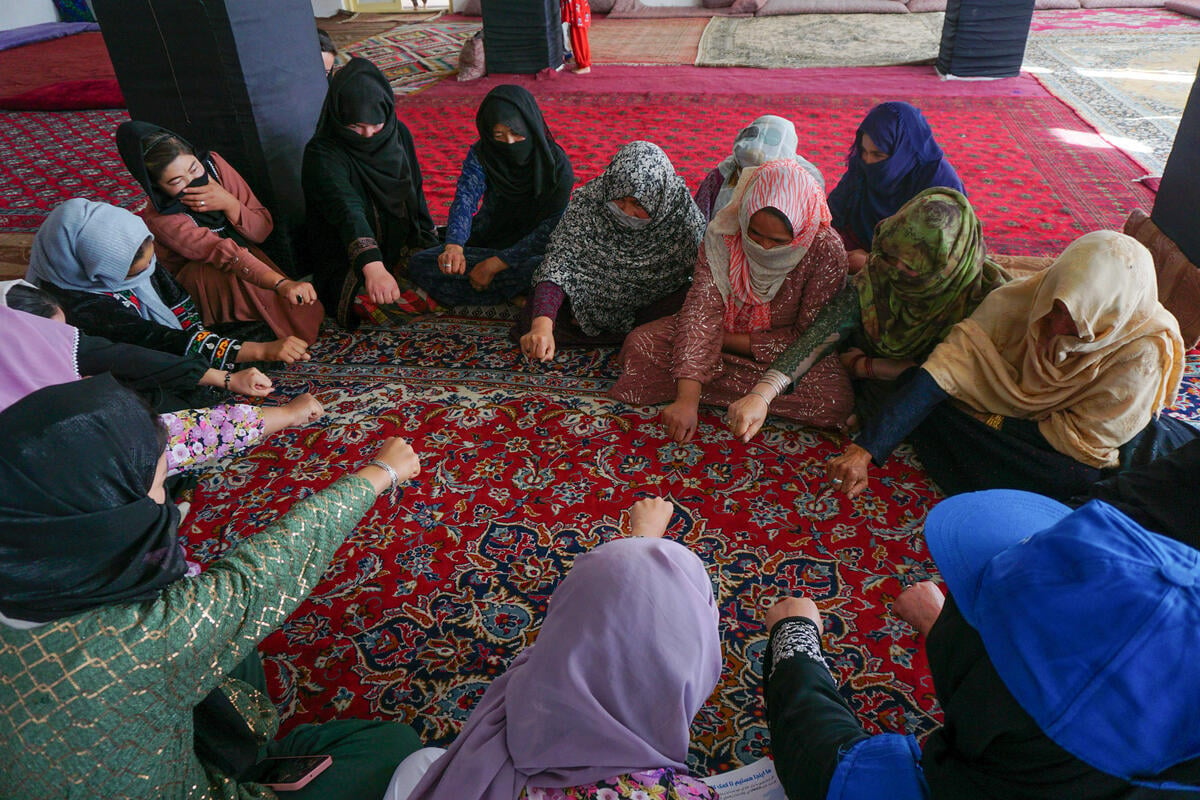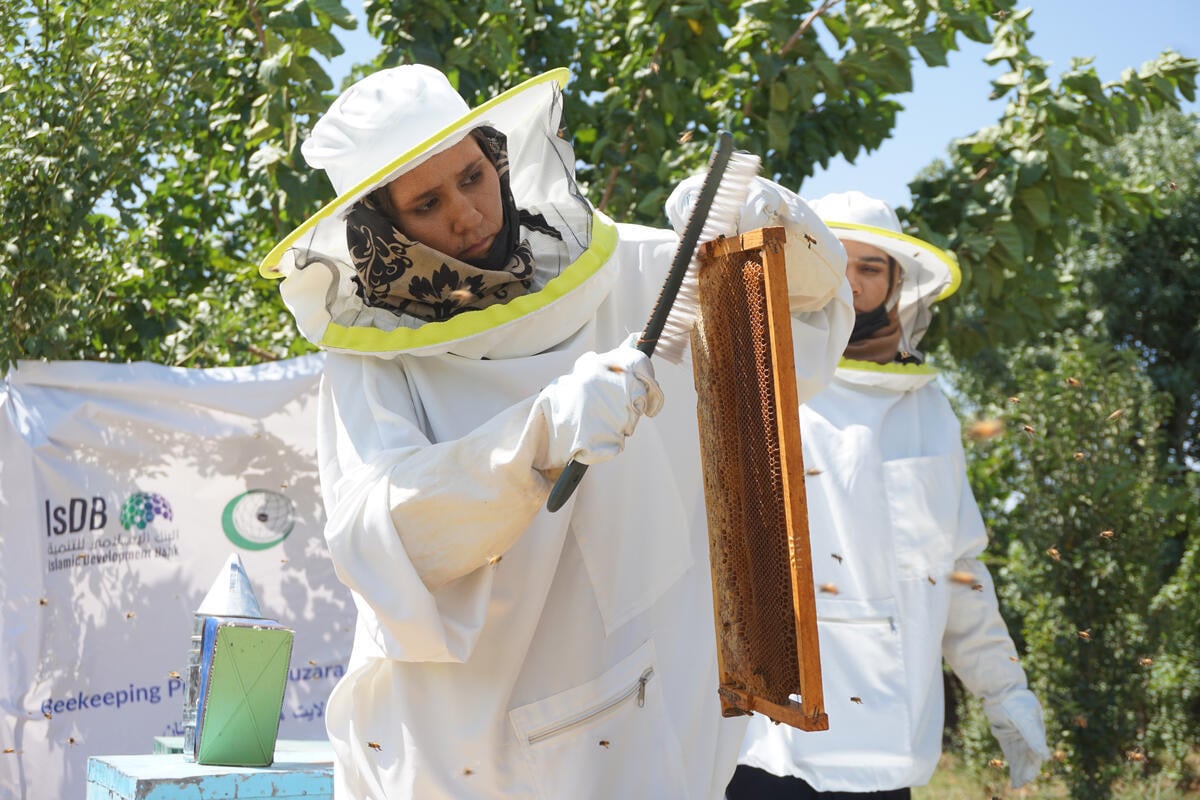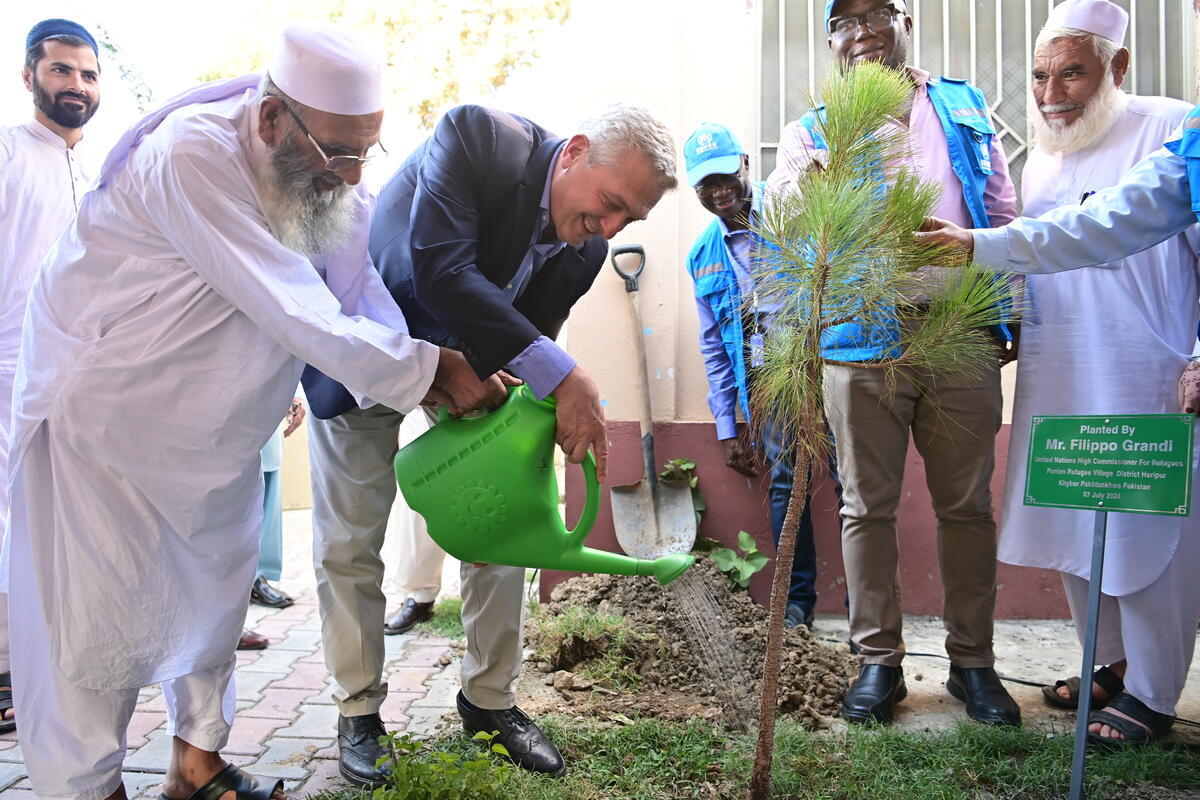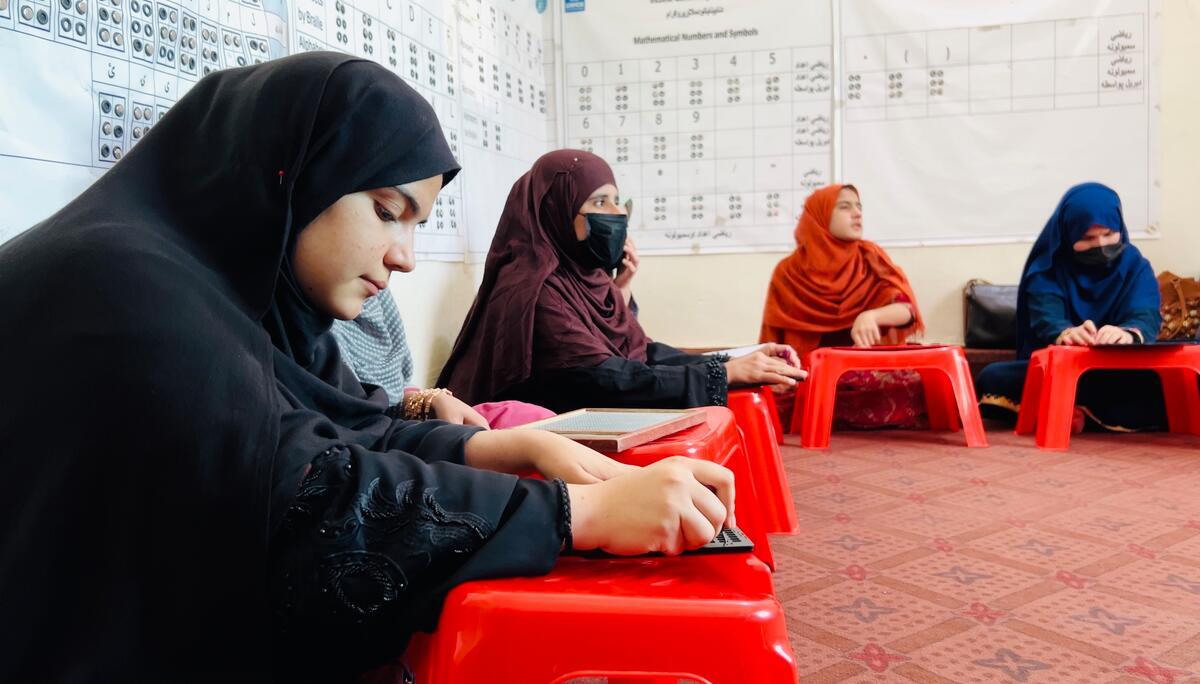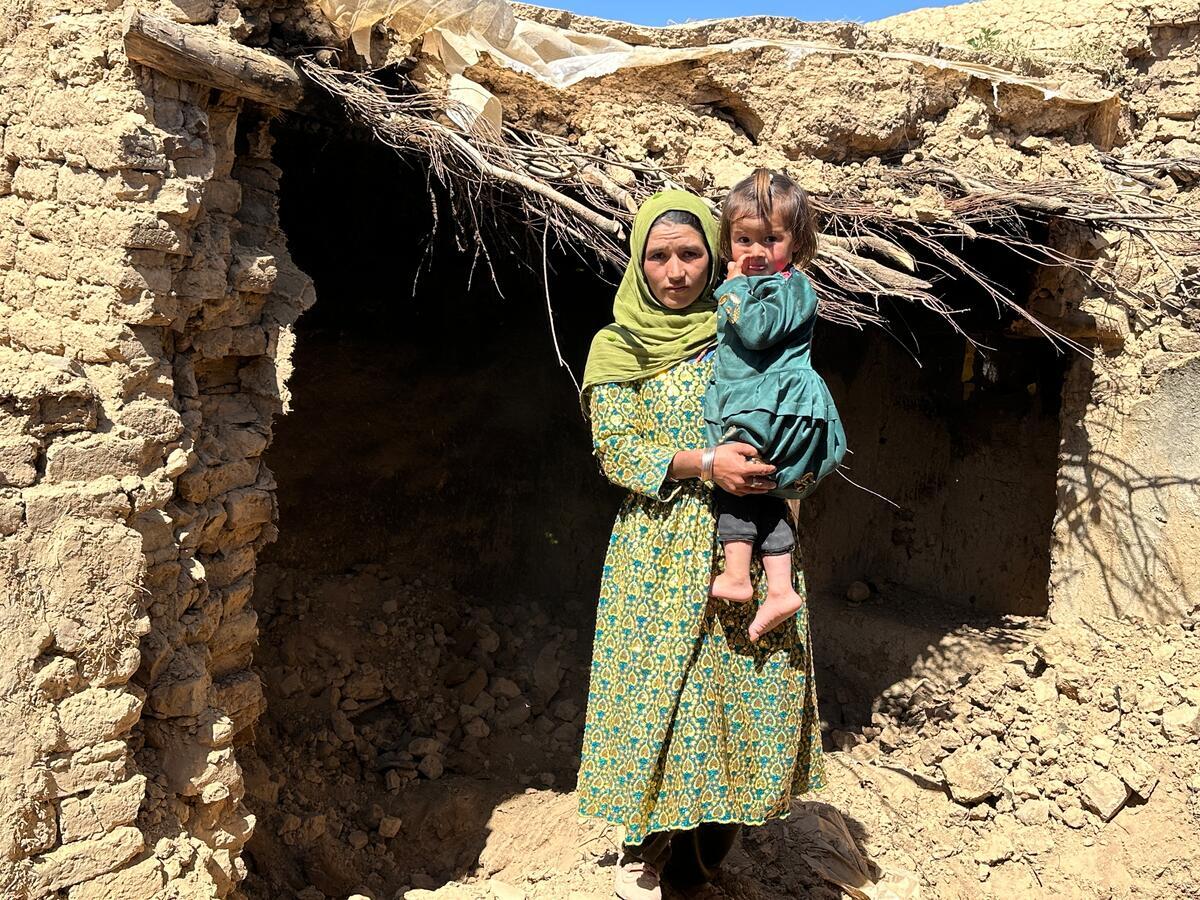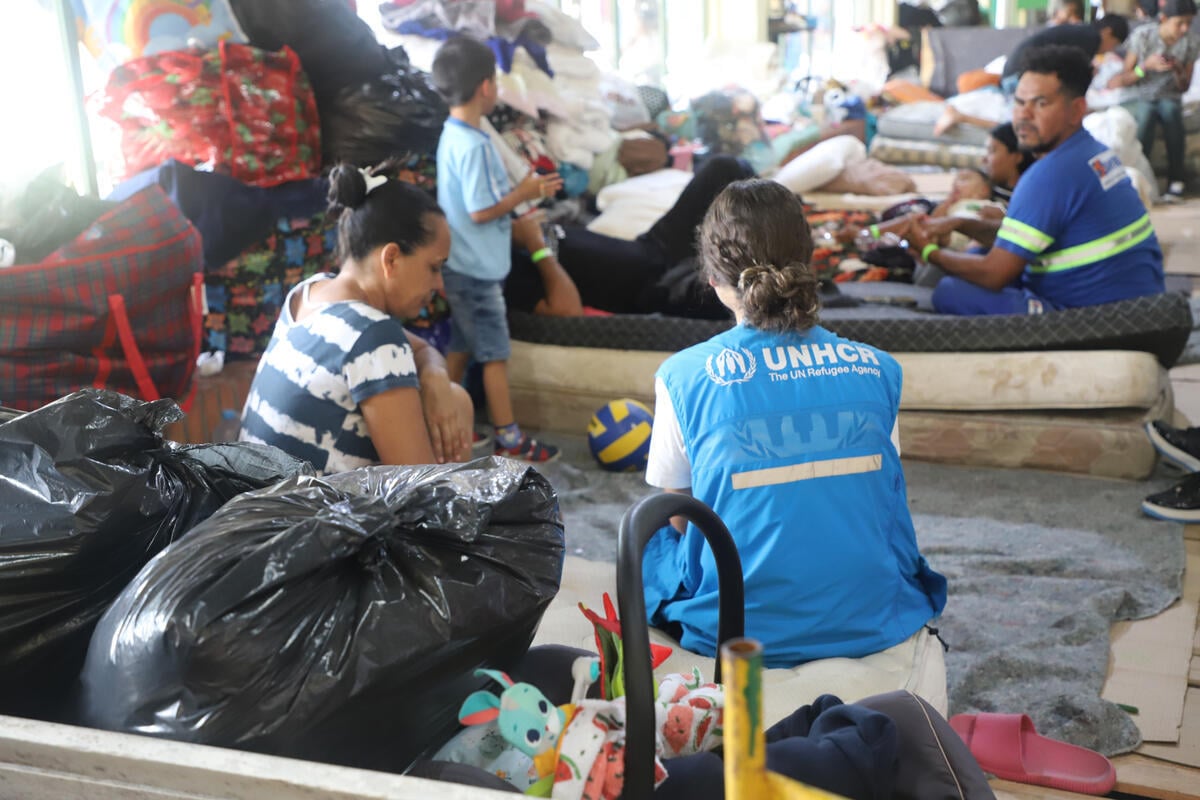Afghan leaders persuade tribesmen to come home
Afghan leaders persuade tribesmen to come home

PESHAWAR, Pakistan, July 30 (UNHCR) - In a departure from the usual "go-and-see" visit, the UN refugee agency has organised a "come-and-talk" mission by Afghan elders from the Mangal tribe, who recently visited their refugee counterparts in Pakistan to tell them more about conditions at home.
Hundreds of Afghan Mangal refugees are said to be considering repatriation after the talks.
Last week, a delegation of the Mangal tribe from Paktia province (south of Kabul) visited Afghan refugee camps in Pakistan's North West Frontier province to discuss their return to Afghanistan. They were joined by staff members of UNHCR Gardez and two young Afghan refugees who recently returned from Pakistan.
The Mangal Working Group, as it calls itself, was warmly received by tribesmen in Pakistan. In some camps, it was greeted by large numbers of Mangal refugees, while in other camps only the refugee elders turned up. All the meetings took place in a friendly environment with animated discussions that covered topics ranging from politics to security and rehabilitation activities.
Majeed Khan, a refugee leader in Katakani camp, lamented the lack of Mangal representation in the current Kabul government. "We would like to see a much more broad-based and representative government in Kabul ahead of our repatriation," he said.
Others expressed concerns about insecurity outside the Afghan capital. The Working Group assured them that the Shura (a traditional Islamic consultative decision-making process) of Mangals is still intact and working effectively, and that a ban had been imposed on all types of family feuds for the next two years.
"The ban has been imposed to help Mangals to come back and get settled," explained Rasool Khan, one of the visiting elders.
When the refugees lamented the lack of job opportunities back in Afghanistan, the Working Group countered by saying that there is plenty of work for everyone.
"The scarcity of manpower is negatively affecting many rehabilitation projects," said visiting elder Rasool Khan. "We invite you to come back to your country and help us in the process of reconstruction."
Engineer Amanullah Faizi from UNHCR Gardez stressed that due to the unity of Mangals, aid agencies are now prepared to undertake rehabilitation projects in their area. One example is the provision of shelter assistance for 1,500 returnee families in Paktia province this year.
The Mangal elders also informed the refugees about a recent visit to their area by the US Ambassador, who promised a health clinic for each district.
Education was another major concern for the Mangal refugees. "I am putting up with this hot weather in Pakistan only for the education of my 16 grandchildren," said Dawlat Khan, a rich and well-respected personality among the Mangals. "I am not fully convinced they will get the same quality of education back in our village, Janikhel."
Nawab Khan, an 18-year-old refugee from Gamkol camp, added, "Though I have never seen Afghanistan, I am determined to go back to my native homeland if I am provided with a high school near my village."
The overall results of the Mangal Working Group's visit were very positive. For the refugees, it was a unique chance to talk to their own people from across the border. They were happy and excited, and shared their fears and problems in a frank and friendly environment. The exchange helped them to clear up ambiguities about conditions at home.
"We could have more return groups this year if the Working Group had visited earlier in March or April," said UNHCR field officer Bashir Ahmad. "Still, after these meetings, a number of families - 50 to 70 - seem to be prepared to repatriate this year."

UNHCR protection officer in Gardez, John McKissick, said, "The refugee elders will give us a list of families willing to repatriate this year. Based on the discussion, it can be safely assumed that a good number of Mangal refugees - 500 to 700 families - will return in 2004 if the overall security situation does not deteriorate."
McKissick added, "Another factor that could affect the Mangals' decision to return next year is the rehabilitation assistance that is offered to the returnees this year."
The Mangal Working Group may have returned from its mission to Pakistan's north-west, but its effect still lingers. Inspired by the Mangal experience, other refugee tribes in Pakistan's camps have requested similar kinds of exchanges with their tribes from across the border.

